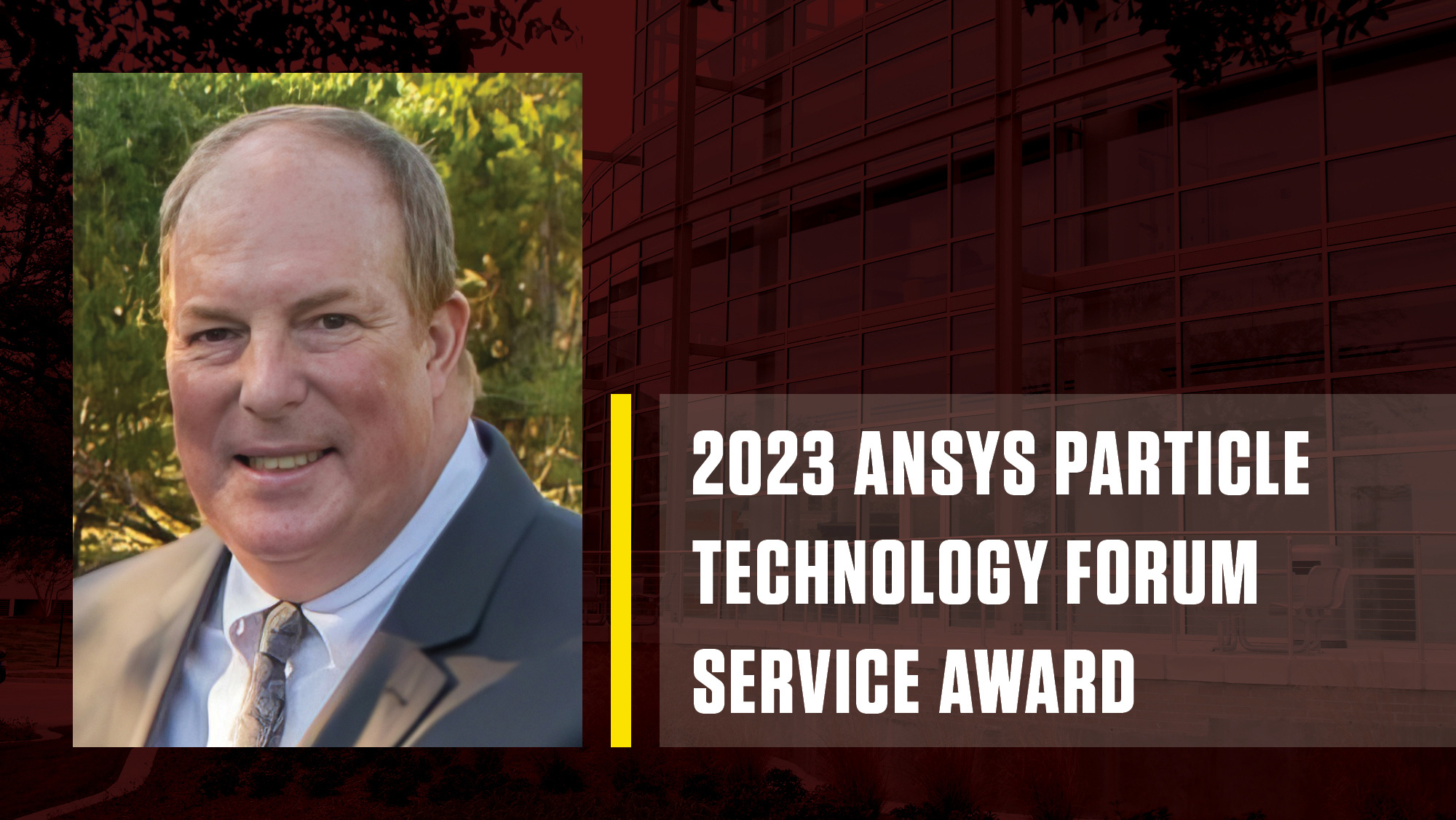
Industrial Advisory Board member and former visiting professor, Dr. Bruce Hook is the 2023 Ansys Particle Technology Forum Service Award winner from the American Institute of Chemical Engineers.
This award recognizes a forum member’s lifetime outstanding scientific/technical contributions, as well as leadership in promoting scholarship, research, development, service and/or education in the field of particle technology.
Hook joined the Artie McFerrin Department of Chemical Engineering advisory council in 2023. His goal is to support the mission of providing the best education and research possible by speaking with students and faculty and working to influence positive change within the department and college.
“Dr. Hook has represented Texas A&M well through his leadership both in industry and in AIChE, and it is exciting to see that he is being recognized for that leadership,” said Dr. Faisal Khan, interim department head. “We also sincerely appreciate his continuing work with our department as a member of our advisory board.”
Hook has been a visiting professor in the department twice, in 1998 and 2010, teaching a particle technology class. He also helped recruit Texas A&M students for Dow Chemical during his 30-year career with the company.
“Dr. Hook exemplifies the kind of leadership and excellence that Aggie chemical engineers bring to industry,” said Dr. Micah Green, associate department head of external engagement. “He has also been a great ally of the department by collaborating in research and recruiting.”
Hook has been active with AIChE programming for most of his career by serving on committees and as chair/co-chair at sessions for over 25 of the last 34 annual meetings.
He has also received 23 granted patents, several peer-reviewed publications and given over 20 presentations at conferences or invited talks. He is also an elected industrial liaison to the Particle Technology Forum (PTF) executive committee. The PTF is a global organization that brings researchers in the particle technology space for various manufacturing industries together and aligns with AICHE.
“Particle technology is an area that continues to be underserved by most chemical engineering departments because of little instruction on material handling, storage, and transport of solid materials, which behave very differently from gasses and liquids.
At Dow, Dr. Hook focused on process development and process improvement for a variety of chemical processes, many dealing with particle technology.
“Particle technology is an area that continues to be underserved by most chemical engineering departments because of little instruction on material handling, storage, and transport of solid materials, which behave very differently from gasses and liquids,” Hook said.
Hook said most challenges with new plant startups and many operational issues with existing plants are due to solids handling or particle technology issues. Often, plants can lower production costs and become more efficient with more reliable plant designs, which require fewer interventions, he said.
“We do a lot of work on making plants more efficient, increasing capacity for existing plants with minimal capital infusion,” Hook said. “Most of our environmental opportunities for the future will ultimately be solved by applying some form of chemical engineering principles.”
Hook has 40 years of research and development and process design experience, including work in process optimization for new product development, process scale-up, particle engineering, particle coating fluidization, pneumatic conveying and solids handling. He has also contributed to drying and storage, modeling gas-solid hydrodynamics, multiphase and heterogeneous reactor modeling and design, catalyst development, and reaction kinetics for heterogeneous catalytic systems.
“It's a recognition of years of helping. Particle technology areas that have those problems and that was one of the reasons why this study was important,” Hook said. “The field is constantly expanding and finding new ways to be applied and to innovate to make our world a better place to live.”